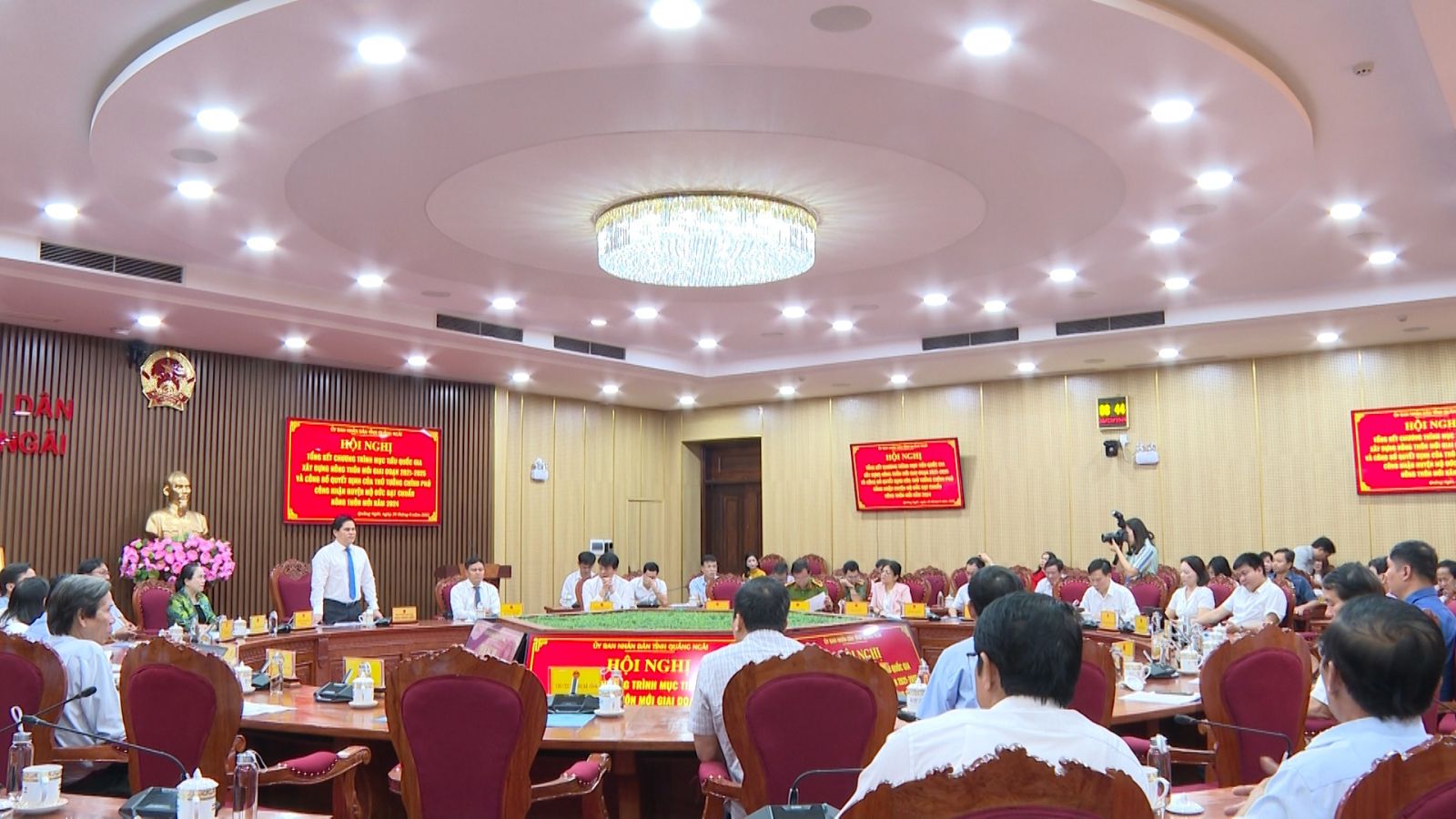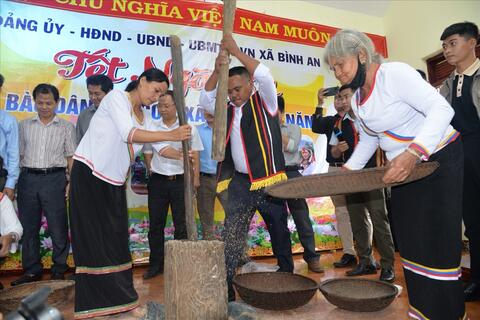
Quảng Ngãi - Vice Chairman of the Quảng Ngãi Provincial People’s Committee, Trần Phước Hiền, on June 26 chaired a conference to review the implementation of the National Target Program on New Rural Development (NRD) for the 2021–2025 period.
The event was attended by Trần Nhật Lam, Deputy Chief of the Central Coordination Office for NRD, along with leaders of provincial departments and localities.
According to the report, the program has achieved significant results, helping transform rural areas and improve the material and spiritual lives of residents.
So far, three districts—Nghĩa Hành, Tư Nghĩa, and Mộ Đức—have been recognized as meeting national new rural standards.
98 out of 144 communes (68.05 per cent) have been certified as new rural communes, including 12 advanced new rural communes and 95 exemplary rural residential areas.
The “One Commune, One Product” (OCOP) program has been widely implemented, contributing to rural economic development.
All districts, towns, and cities have 350 OCOP products, including two 5-star national-level products: Lý Sơn garlic and Quảng Ngãi malt syrup.
The province also has 16 4-star products and 332 3-star products.
Quảng Ngãi aims to build modern, comprehensive, and sustainable rural areas with well-developed socio-economic infrastructure.
Efforts will focus on applying science, technology, and digital transformation to boost rural income, quality of life, and access to essential services.
By 2030, the province targets over 65 per cent of communes meeting new rural standards and over 35 per cent reaching advanced standards.
By 2035, over 80 per cent of communes are expected to meet new rural standards, 60 per cent advanced standards, and more than 14 per cent modern rural standards.
.png)
In his concluding remarks, Vice Chairman Trần Phước Hiền emphasized that from 2026–2035, Quảng Ngãi would implement a two-tier local government model (province and commune), removing the district level.
He called for continued communication to raise awareness among officials and citizens, better integration of the NRD program with poverty reduction and rural economic development initiatives, and prompt reorganization of local steering committees after administrative mergers.
He also urged communes to develop action plans aligned with the new rural criteria for 2026–2035, and to adjust commune-level rural planning to fit with the new administrative units and broader provincial plans.
Priority will be given to agricultural restructuring toward higher value and sustainability, supporting effective production models for poor households, women, and ethnic minorities.
OCOP product development should focus on quality, uniqueness, and environmental friendliness, with greater use of technology, innovation, and digital tools—especially for cooperatives and private enterprises.
The province also aims to promote community-based tourism and integrate digital solutions into rural tourism services.
M.H










.png)

